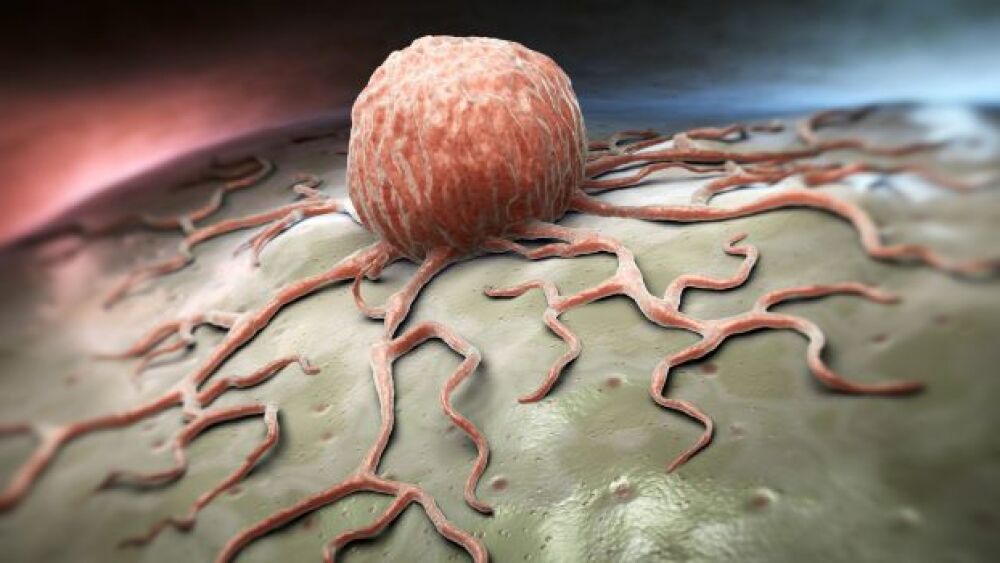Innate Pharma has an alternative to T cell-based immunotherapy that has the potential to quickly and safely eradicate solid and metastatic tumors in the body.
Innate Pharma has an alternative to T cell-based immunotherapy that has the potential to quickly and safely eradicate solid and metastatic tumors in the body. The caveat is that the work has, as yet, advanced only to non-human primates. With IND-enabling studies being conducted by Innate’s partner, Sanofi, the start of human clinical trials seems likely to begin sometime in 2022.
Called ANKET™ (Antibody-based NK cell Engager Therapeutics), this platform therapy has completely eradicated tumors in animal models. “In my 25 years of work I’ve never seen such preclinical efficacy,” Eric Vivier, Ph.D., DVM, Innate Pharma CSO and a leading researcher in NK cell biology, told BioSpace. “It’s an unprecedented technical and scientific breakthrough.”
ANKET is a systemic therapy that harnesses the innate immune system, combining – for the first time – engagers for the activating receptors NKp46 and CD16, an interleukin 2 (IL-2) cytokine variant, and a tumor antigen in a single molecule.
As Vivier explained, NKp46 triggers the activation of the NK cells. “It is the most specific NK cell marker we have found so far,” he said. “It initiates a transduction pathway that leads…ultimately, to the induction of cytokines and chemokines, which enable the initiation of the adaptive immune response.” He equates it to a spark igniting a fire.
As a cancer therapeutic, that could be good, but Vivier knew they could do better. He and his team co-engaged NKp46 with another antibody receptor, CD16. “This is an Fc receptor that also recognizes and kills tumor cells. By coupling NKp46 and CD16 (on the engager molecule), you get super activation,” he said.
“The third ANKET component – the specific tumor antigen – directs NK cells to exactly where we want them,” Vivier. It, essentially, forms a bridge between the NK engager molecule and the tumor cells.
“Recently we added a fourth component to the ANKET: an IL-2 variant. IL-2 is very efficient in coping with tumors, but it can also be quite toxic,” Vivier noted. Innate Pharma addressed the toxicity issue by designing a non-alpha IL-2.
“The IL-2 receptor is composed of three parts: alpha, beta, and gamma,” he explained. By designing a variant that will not interact with the alpha portion and, instead, binds only with the beta and gamma portions of receptor, the unwanted toxicity was eliminated.
By using antibody fragments, ANKET can be seen as a Lego-like molecule that can be adjusted at will. When injected intravenously, it, theoretically, can be directed against any solid, metastatic, or hematologic tumor.
Vivier and his team have examined the pharmacokinetics, pharmacodynamics, and safety data for ANKET™ and returned with green lights all around. They also saw the same favorable outcomes repeated as the studies escalated from mice to non-human primates. “We’ve looked at every parameter we can think of and have seen no toxicity whatever, so we’re very excited,” he said.
GMP manufacturability already has been worked out based on its trivalent ANKET™ molecule. In January, Innate’s partner, Sanofi, made the decision to use this format to advance the asset IPH6101/SAR443579.
“T cell therapies have led to unprecedented success, but there many patients who don’t benefit at all from this treatment, and others who benefit for an insufficient duration,” Vivier said.
One of the issues is that “T-cells are not autonomous. They cannot eliminate tumors by themselves. They are part of the adaptive immune system (the body’s second line of defense) and need the cells of the innate immune system (such as the dendritic cells, macrophages and NK cells) in order to do what they do, as well as days of pre-activation. As Vivier and his colleagues have published in Nature, harnessing innate immunity in cancer therapies is an exciting path to improve T cell-centric cancer treatments.
“NK cells, in contrast, kill tumor cells instantly. That’s the major difference between T cells and NK cells. They are part of the innate immune system – the first line of defense,” Vivier said.
In another piece, published in Nature in early June, Vivier and Noella Lopes, a senior postdoctoral researcher at the Centre d’Immunologie de Marseille-Luminy, Aix Marseille University, Marseille, reported that NK cells lull metastatic tumors into dormancy and appear to prevent those dormant cancer cells from reawakening. “The size of the pool of NK cells in the liver environment determines whether dormancy occurs or metastases form,” they wrote. Other researchers have determined that NK cells also have additional anticancer roles.
Innate Pharma has focused its ANKET™ work around its proprietary format and known antigen, and is eager to advance into clinical trials. “We have solid science, good efficacy and safety data, and a greenlight around manufacturing,” Vivier reiterated. Now he needs to see if those results are repeated in humans.






